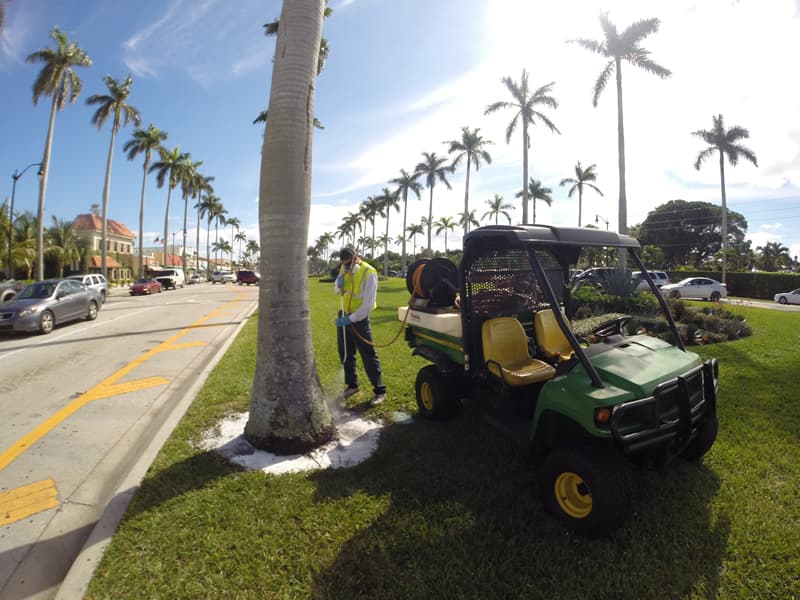
INTEGRATED PEST MANAGEMENT MISSION
As your lawn and ornamental management specialists, we are responsible for the coordination of your integrated pest management (IPM) program outdoors. This implies that we will first see to the provision of adequate cultural controls (irrigation, nutrition, and cultivation) to strengthen your landscaping. Then, as a last resort, we will apply deadly force (chemical pesticides) only to those pests who would presume to attack it.
What does this mean?
In the not too distant past, it was widely accepted that regularly scheduled general pesticide applications, applied over virtually all plants or lawns, were the most effective pest control for lawns and ornamental plants. Over the decades however, this method gradually manifested catastrophic drawbacks.
Being insufficiently biodegradable, many common pesticide chemicals began to show up in ground water supplies, plants, animals, and at other points along the ecological cycle. This situation wreaked havoc upon beneficial predator insect populations, which are an essential component of integrated pest management, and honeybees, which are critical toward 94% of successful crop pollination. With the decrease of natural enemies and honeybees, generations of pests perpetuated virtually without natural controls while agricultural production was depleted.
Further exacerbating the problem, the only survivors of blanket pest control applications would be the most genetically immune. Their descendants would inherit this immunity and subsequently pass it on to the next generation, quickly creating entire populations of improved genetically immune pests.
Armed with this information, our priorities involve the establishment of proper cultivation (weeding, pruning, mowing, raking) and irrigation (water delivery) so plants and lawns can make maximum use of nutrition taken from natural (soil, rain, atmosphere) and artificial (fertilizer) sources. Because these cultural controls are effective, few pest problems requiring chemical treatment are found during our routine inspections.
Nonetheless, we never shoot first and ask questions later. For example, if numerous beneficial predator insects are found, we hold our fire. Other mitigating factors might involve the presence of children, nesting birds, active honeybees, aquatic environments, or high winds.
Never forget that because plants are alive, they have health. Our lawn and ornamental integrated pest management (IPM) program is successful because it always prioritizes the good health of the landscaping over the application of chemical pesticides.
© Thomas J. O'Hara, President
O'Hara Landscape & Maintenance, Inc.
1-800-926-9599
www.oharalandscape.com
![]()

